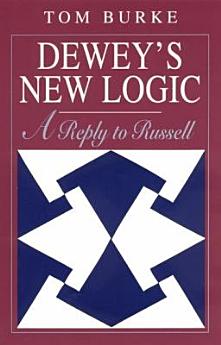

Celebrated for his work in the philosophy of education and acknowledged as a leading proponent of American pragmatism, John Dewey might have had more of a reputation for his philosophy of logic had Bertrand Russell not so fervidly attacked him on the subject. This book analyzes the debate between Russell and Dewey that followed the 1938 publication of Dewey's Logic: The Theory of Inquiry, and argues that, despite Russell's early resistance, Dewey's logic is surprisingly relevant to recent developments in philosophy and cognitive science. Since Dewey's logic focuses on natural language in everyday experience, it poses a challenge to Russell's formal syntactic conception of logic. Tom Burke demonstrates that Russell misunderstood crucial aspects of Dewey's theory - his ideas on propositions, judgments, inquiry, situations, and warranted assertibility - and contends that logic today has progressed beyond Russell and is approaching Dewey's broader perspective. Burke relates Dewey's logic to issues in epistemology, philosophy of language and psychology, computer science, and formal semantics.
Idioma
Inglés
Código ISBN
9780226080703
Editorial
university of chicago press
Año de publicación
1998